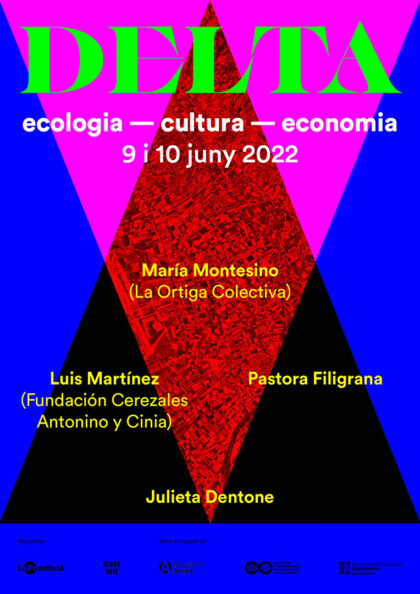

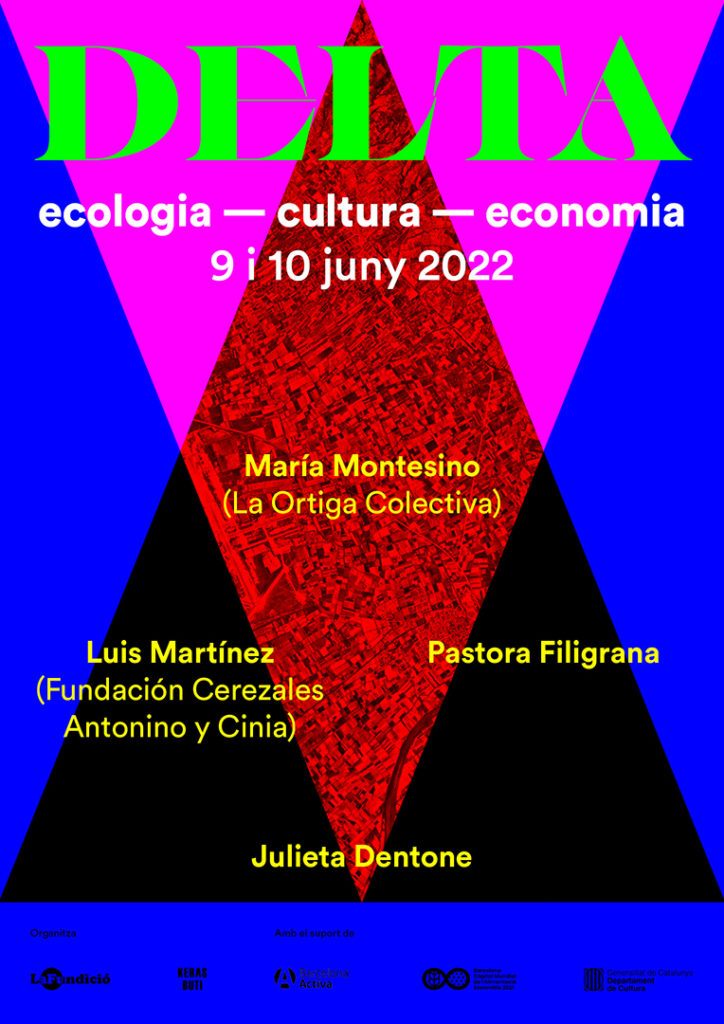
[CAT]
In Spanish below
DELTA (ECOLOGY — CULTURE — ECONOMY)
Rururban cultures and economies for the ecosocial transition
June 9 and 10, 2022
Location:
Espai Pomezia (c. Pins, 10, l’Hospitalet. <M> L1 La Florida)
Les Cabasses (camí Ferran Puig s/n, Sant Boi https://goo.gl/maps/KJkehbhj7zQC9Dqg7)
Registration: hola@lafundicio.net
PROGRAM:
THURSDAY, JUNE 9 — ESPAI POMEZIA
6 to 8:30 p.m.
CULTURE, ECONOMY, AND ECOLOGY IN RURAL AREAS
TALK AND DEBATE WITH:
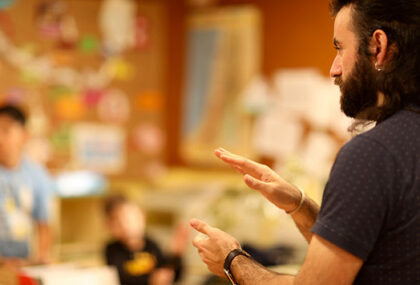
Luis Martínez: Musician, artist, and educator. He produces, directs, and collaborates on artistic and educational projects that address sound from an expanded and transdisciplinary vision, with collaborative creative processes being especially important. He is currently responsible for the sound and listening area at the Fundación Cerezales Antonino y Cinia.
The Fundación Cerezales Antonino y Cinia is a private institution located in Cerezales del Condado (León), focused on the development of the territory and the transfer of knowledge to society through two lines of action: cultural production and ethno-education. These lines of action are articulated around art, records of the present, music, the environment, sociology, and economics, among other cross-cutting disciplines.
IG: @antoninoycinia
TW: @antoninoycinia
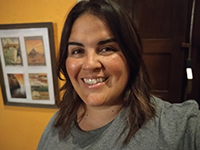
María Montesino: Holds a degree in Sociology from the University of the Basque Country, where she is currently working on her doctoral thesis on new ruralities, culture, and food sovereignty. She is part of La Ortiga Colectiva, where she co-directs the art, literature, and thought magazine La Ortiga. She has been working in rural areas since 2005, coordinating itinerant workshops on anthropology, feminisms, and agroecology, as well as editions and meetings. She collaborates with various cultural institutions in the fields of social sciences training, culture, and agroecology. She is an agroecological producer at Dehesa La Lejuca, a high mountain livestock farm in the Campoo valley in Cantabria.
TW: @mar_montesino
TW: @ortigacolectiva
FRIDAY, JUNE 10
11 a.m. to 2 p.m. — LES CABASSES
*Group departure at 10 a.m. by bicycle from Prado 11 – Espai LaFundició (c. Prat, 11, Bellvitge, l’Hospitalet) at 10 a.m.
VISIT
At the Les Cabasses farm (Parc Agrari del Baix Llobregat) with Jonas Abreu (L’Hort de l’Eriçó).
WORKSHOP “El HURMIENTO: STEP 1. MOTHER MUD” WITH
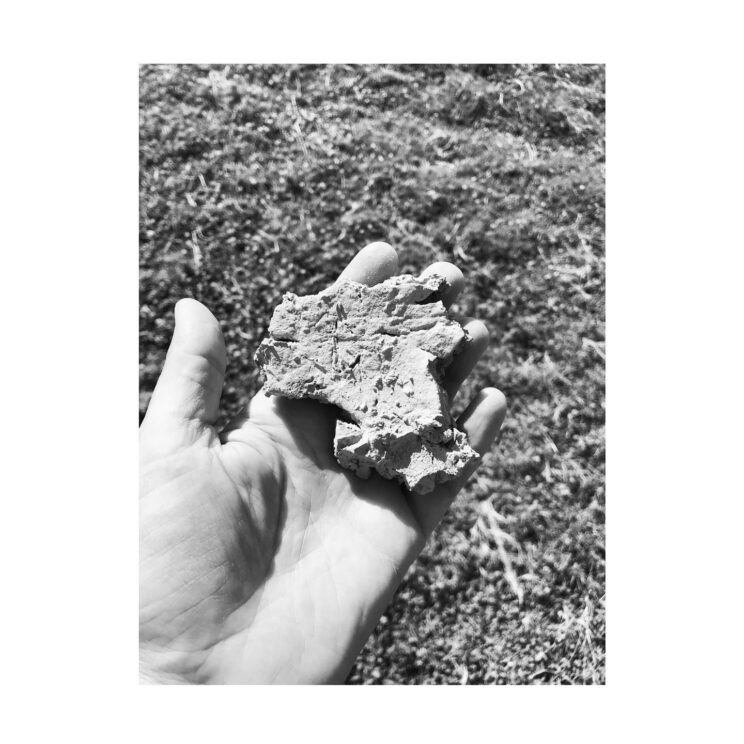
Julieta Dentone:Argentine artist and ceramicist. She combines her work with teaching, research in artistic education projects, and teaching the craft. Her work focuses on research, experimentation, and creation based on the recovery and reinterpretation of traditional techniques and ways of doing things.
This will be the first step to, in successive workshops, make a ceramic container to hold hurmiento. Until the advent of industrial ovens, in many rural areas it was common to knead bread in homes and bake it in communal ovens. The hurmiento was the fermented dough from the previous day (what we know today as sourdough) that passed from house to house in a clay container. Container and content were known as
From the exploration of the closest environment, the Delta del Llobregat, and in dialogue with the possibilities that this landscape offers us, we will learn the first steps to identify, obtain, and prepare the mother mud for our future ceramic piece.
TW: @ju_dentone
LUNCH
Pizzas baked in the mud oven at Les Cabasses.
With lunch: €6
6 to 8 p.m. — ESPAI POMEZIA
COMMUNITY ECONOMIES TO SUSTAIN LIFE
ROUND TABLE WITH
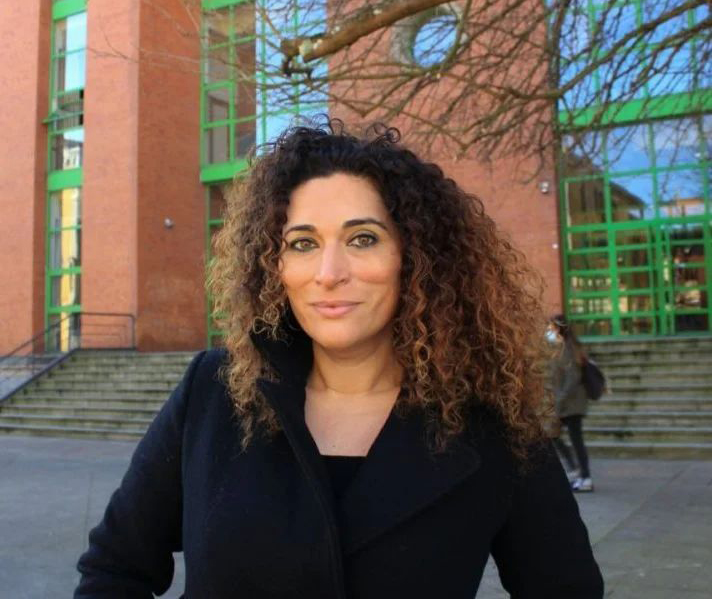
Pastora Filigrana: Pastora Filigrana: She is a lawyer specializing in labor and trade union law and immigration law. She is part of the Sindicato Andaluz de Trabajadores y Trabajadoras (SAT) and also of the Red Antidiscriminatoria Gitana (RAG). She has written The Roma people against the world-system. Reflections from a feminist and anti-capitalist militancy (Akal, 2020), where she reflects on alternatives to the capitalist system based on the contributions of the Roma people, feminism, and trade unionism.
With the participation of the Roma association of l’Hospitalet Lacho Baji Cali, CoopHalal and ACAF (Asociación de Comunidades Autofinanciadas).
Organized in collaboration with the urban communality La Florida s’aveïna and La Col·lectiva Ateneu Cooperatiu de l’Hospitalet .
TW: @PastoriFiligran, @Lachobajicali1, @HalalCoop, @Laflori_saveina, @La_Collectiva
IG: @pastorifiligrana, @lachobajicali, @coophalal, @lafloridasaveina, @la_collectiva
PRESENTATION:
The DELTA conferences aim to imagine cultural and metabolic practices, relationships, and processes that contribute to building socio-ecosystems for the care and sustenance of life (human and extra-human) in the agropolitan area of the Llobregat delta.
In the years of desarrollismo, a huge number of rural and peasant populations moved to the large urban centers to work in industry. Because of this exodus, municipalities on the periphery of Barcelona, such as l’Hospitalet, experienced unprecedented growth. This growth was possible, to a large extent, thanks to the urbanization of large expanses of agricultural land near or directly located in the deltaic area of the Llobregat.
These new inhabitants massively joined the industrial sector and the sphere of consumption associated with the values of modernity and development. For this, it was necessary to first proletarianize all this mass of population, and then middle-classize it in order to feed the cycles of capitalist accumulation. These assimilation processes were based on the promotion of the patriarchal model of the nuclear family or the stigmatization of rural culture and ways of life, among other things. However, since acculturation processes are never perfectly complete, even today forms of relationship and cultural practices that refer to the rural origin of a significant part of its inhabitants persist in the urban peripheries. Decades later, this current would connect with the global migratory flows from the countryside to the cities imposed by the complete neoliberal globalization of the economy, which particularly includes food production.
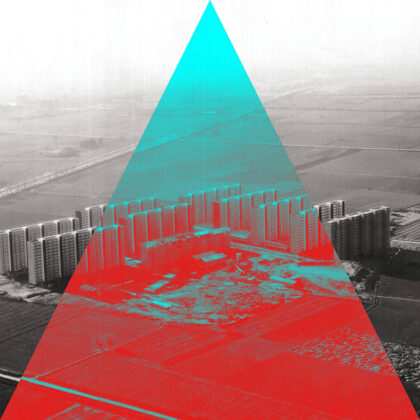
On the other hand, as Barcelona and its metropolitan area progressively joined the economic flows and global commodity chains—and the international care chains, it should be noted—the spatial arrangements that these required were made, such as the expansions of the port and the airport or the construction of expressways and logistics centers. The progressive expansion of the port of Barcelona is paradigmatic: after swallowing the beaches east of the delta and the agricultural areas of Sants and l’Hospitalet, it demanded diverting the mouth of the Llobregat River to the south, channeling it with concrete walls. The impact of these actions on the socio-ecosystems of the delta is immeasurable.
All these processes are simultaneously economic, cultural, and ecological in nature, since cultural practices and economic exchanges do not occur against the backdrop of a pre-existing and defenseless nature but through it, interweaving with the fabric of life.
In this second edition, the conferences continue to be closely linked to the launch of Les Cabasses, a two-hectare farm located in the Parc Agrari del Baix Llobregat dedicated, on the one hand, to agroecological production and, on the other, in an interrelated way, to the symbolic production and knowledge of rururban areas. Thus, we want to situate the debates and the thinking generated during the conferences in the specific context of the Llobregat delta, a characteristically agropolitan territory.
Ultimately, the conferences also want to be an instrument to add to the movements for the defense of the territory, which serves to build new alliances and incorporate the role of culture both in its understanding and in the construction of social and environmental alternatives.
Registration by sending an email to: hola@lafundicio.net
Organized by: LaFundició and Keras Buti association
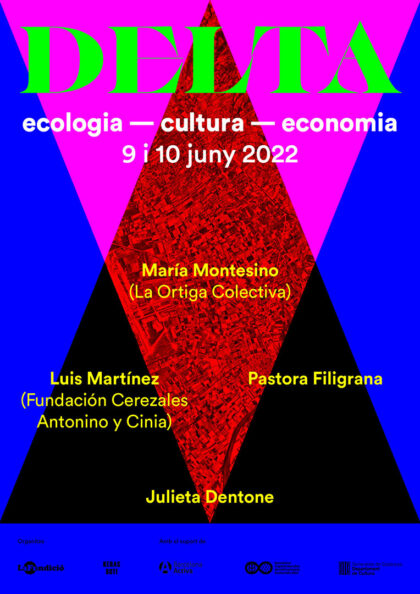
—————————————
[CAST]
DELTA (ECOLOGY — CULTURE — ECONOMY)
Rururban cultures and economies for the ecosocial transition
June 9 and 10, 2022
Location:
Espai Pomezia (Pins, 10, l’Hospitalet. <M> L1 La Florida)
Les Cabasses (Ferran Puig s/n, Sant Boi https://goo.gl/maps/KJkehbhj7zQC9Dqg7)
Registration: hola@lafundicio.net
PROGRAM:
THURSDAY, JUNE 9 — ESPAI POMEZIA
6 to 8:30 p.m.
CULTURE, ECONOMY, AND ECOLOGY IN RURAL AREAS
TALK AND DEBATE WITH
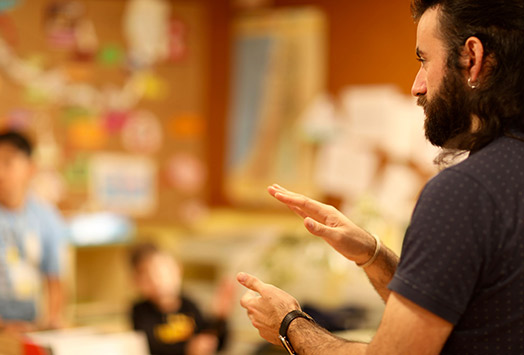
Luis Martínez: Musician, artist, and educator. He produces, directs, and collaborates on artistic and educational projects in which he approaches sound from an expanded and transdisciplinary vision, with collaborative creative processes being especially important. He is currently responsible for the sound and listening area at the Fundación Cerezales Antonino y Cinia.
The Fundación Cerezales Antonino y Cinia is a private institution located in Cerezales del Condado (León), focused on the development of the territory and the transfer of knowledge to society through two lines of action: cultural production and ethno-education. These lines of action are articulated around art, in its records of the present, music, the environment, sociology, and economics, among other cross-cutting disciplines.
IG: @antoninoycinia
TW: @antoninoycinia
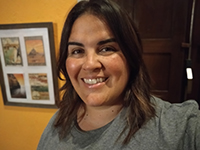
María Montesino: Holds a degree in Sociology from the University of the Basque Country, where she is currently working on her doctoral thesis on new ruralities, culture, and food sovereignty. She is part of La Ortiga Colectiva, where she co-directs the art, literature, and thought magazine La Ortiga. She has been working in rural areas since 2005, coordinating itinerant workshops on anthropology, feminisms, and agroecology, as well as editions and meetings. She collaborates with various cultural institutions in the fields of social sciences training, culture, and agroecology. She is an agroecological producer at Dehesa La Lejuca, a high mountain livestock farm in the Campoo valley in Cantabria.
TW: @mar_montesino
TW: @ortigacolectiva
FRIDAY, JUNE 10
11 a.m. to 2 p.m. — LES CABASSES
*Group departure at 10 a.m. by bicycle from Prado 11 – Espai LaFundició (c. Prat, 11, Bellvitge, l’Hospitalet) at 10 a.m.
VISIT
At the Les Cabasses farm (Parc Agrari del Baix Llobregat) with Jonas Abreu (L’Hort de l’Eriçó).
WORKSHOP “El HURMIENTO: STEP 1. LOCAL MUD” WITH
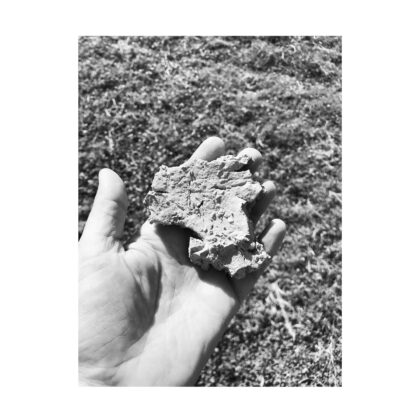
Julieta Dentone:Argentine artist and ceramicist. She combines her work with teaching, research in artistic education projects, and teaching the craft. Her work focuses on research, experimentation, and creation based on the recovery and reinterpretation of traditional techniques and ways of doing things.
This will be the first step to, in successive workshops, make a ceramic container to hold hurmiento. Until the advent of industrial ovens, in many rural areas it was common to knead bread in homes and bake it in communal ovens. The hurmiento was the fermented dough from the previous day (what we know today as sourdough) that passed from house to house in a clay container. Container and content were known as hurmiento in different regions of Castilla-León. This system could be an example of cultural practice and communal management of resources to satisfy a need: bread.
From the exploration of the closest environment, the delta del Llobregat, and in dialogue with the possibilities that this landscape offers us, we will learn the first steps to identify, obtain, and prepare the mother mud for our future ceramic piece.
TW: @ju_dentone
FOOD
Pizzas baked in the mud oven at Les Cabasses.
With food: €6
6 to 8 p.m. — ESPAI POMEZIA
COMMUNITY ECONOMIES TO SUSTAIN LIFE
ROUND TABLE WITH
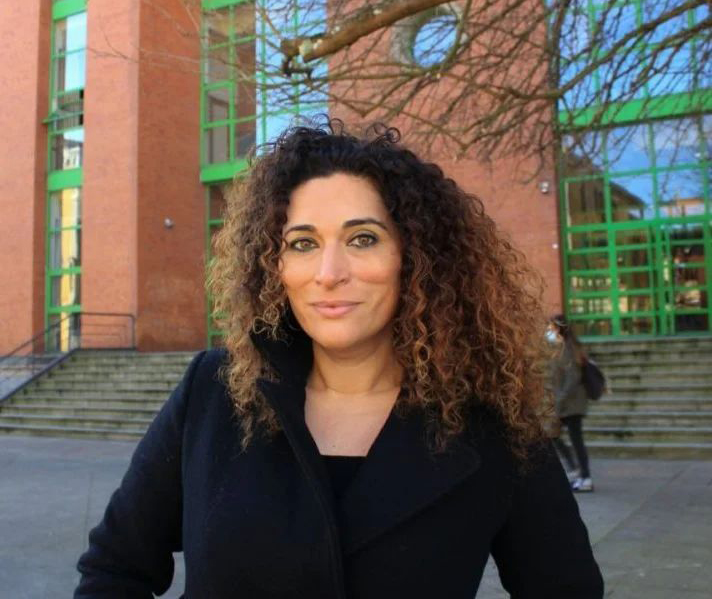
Pastora Filigrana: She is a lawyer specializing in labor and trade union law and immigration law. She is part of the Sindicato Andaluz de Trabajadores y Trabajadoras (SAT) and also of the Red Antidiscriminatoria Gitana (RAG). She has written The Roma people against the world-system. Reflections from a feminist and anti-capitalist militancy (Akal, 2020), where she reflects on alternatives to the capitalist system based on the contributions of the Roma people, feminism, and trade unionism.
With the participation of the Roma association of l’Hospitalet Lacho Baji Cali, CoopHalal and ACAF (Asociación de Comunidades Autofinanciadas).
Organized in collaboration with the urban communality La Florida s’aveïna and La Col·lectiva Ateneu Cooperatiu de l’Hospitalet .
TW: @PastoriFiligran, @Lachobajicali1, @HalalCoop, @Laflori_saveina, @La_Collectiva
IG: @pastorifiligrana, @lachobajicali, @coophalal, @lafloridasaveina, @la_collectiva
PRESENTATION:
The DELTA conferences aim to imagine cultural, relational, and metabolic practices and processes that contribute to building socio-ecosystems for the care and sustenance of life (human and extra-human) in the agropolitan area of the Llobregat delta.
In the years of desarrollismo, a huge number of rural and peasant populations moved to the large urban centers to work in industry. Because of this exodus, municipalities on the periphery of Barcelona, such as l’Hospitalet, experienced unprecedented growth. This growth was possible, to a large extent, thanks to the urbanization of large expanses of agricultural land near or directly located in the deltaic area of the Llobregat.
These new inhabitants massively joined the industrial sector and the sphere of consumption associated with the values of modernity and development. For this, it was necessary to first proletarianize all this mass of population, and then middle-classize them in order to feed the cycles of capitalist accumulation. These assimilation processes were based on the promotion of the patriarchal model of the nuclear family or the stigmatization of rural culture and ways of life, among other things. However, since acculturation processes are never perfectly complete, even today forms of relationship and cultural practices that refer to the rural origin of a significant part of its inhabitants persist in the urban peripheries. Decades later, this current would connect with the global migratory flows from the countryside to the cities imposed by the complete neoliberal globalization of the economy, which particularly includes food production.
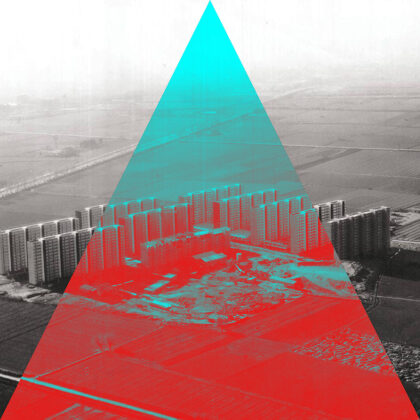
On the other hand, as Barcelona and its metropolitan area progressively joined the economic flows and global commodity chains—and the international care chains, it should be noted—the spatial arrangements that these required were made, such as the expansion of the port and airport, or the construction of highways and logistics centers. The progressive expansion of the port of Barcelona is paradigmatic: after swallowing up the eastern beaches of the delta and the agricultural areas of Sants and l’Hospitalet, it demanded diverting the mouth of the Llobregat River to the south, channeling it with concrete walls. The impact of these actions on the delta’s socio-ecosystems is immeasurable.
All these processes are simultaneously economic, cultural, and ecological, since cultural practices and economic exchanges do not occur against the backdrop of a pre-existing and defenseless nature, but through it, interweaving with the fabric of life.
Ultimately, the conference also aims to be an instrument to add to the movements for the defense of the territory, serving to build new alliances and incorporate the role of culture both in its understanding and in the construction of social and environmental alternatives.
Registration by sending an email to: hola@lafundicio.net
Organized by: LaFundició and association Keras Buti
